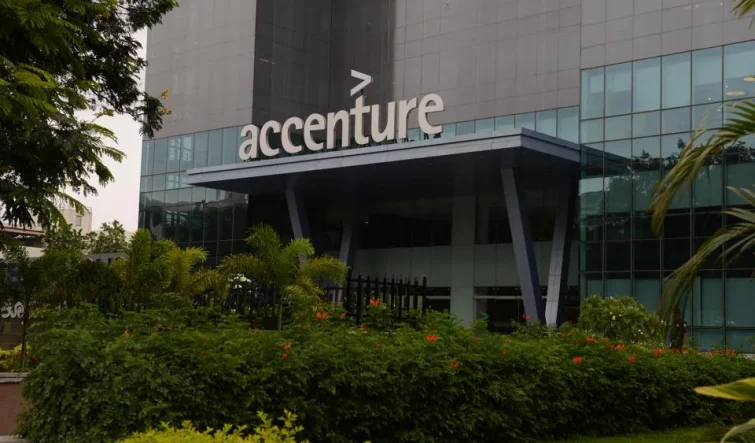Top 20 Accenture Interview Questions and Answers (2025 Guide)

Introduction to Accenture Interview Questions and Answers
Preparing for an Accenture interview in 2025? Whether you’re applying for a consulting, finance, technology, or analytics role, understanding the interview format and commonly asked questions can significantly boost your chances.
This guide breaks down 20 of the most frequently asked Accenture interview questions—covering behavioral, technical, and HR rounds—with sample answers and pro tips to help you stand out.
Our Getting Interview Ready Workshop help students prepare for their CA job interviews by giving them a clearer idea on how to answer interview questions, present themselves professionally, and offer more effective responses.
What to Expect in the Accenture Interview Process
The typical Accenture hiring process includes:
Online Assessment (aptitude, logical reasoning, verbal ability)
Technical Round (role-specific questions)
Behavioral Interview (past experiences, teamwork, leadership)
HR Round (cultural fit, salary expectations, general discussion)
Behavioural & HR Interview Questions
These test your soft skills, communication, adaptability, and alignment with Accenture’s core values.
1. Tell me about yourself.
Tip: Keep it professional. Mention education, relevant experience, skills, and why you’re excited about this role.
Sample Answer:
“I’m a business graduate with 2 years of experience in financial planning and data analysis. I’ve worked on budget forecasting projects that helped improve departmental efficiency by 15%. I’m passionate about solving complex business problems, and Accenture’s client-focused innovation aligns perfectly with my career goals.”
2. Why do you want to join Accenture?
Sample Answer:
“Accenture’s commitment to innovation, diversity, and continuous learning really stands out. I’m excited by the opportunity to work in cross-functional teams and contribute to projects that have global impact.”
3. Describe a challenging situation and how you handled it.
Tip: Use the STAR method – Situation, Task, Action, Result.
Sample Answer:
“In my previous role, I led a team project with a tight deadline and limited resources. I divided tasks based on each member’s strengths, ensured daily check-ins, and completed the project 2 days early. The client appreciated the timely delivery and accuracy.”
4. How do you handle pressure or tight deadlines?
Sample Answer:
“I break down tasks into smaller chunks and prioritize using the Eisenhower matrix. Staying organized, maintaining open communication, and taking short breaks helps me manage stress while staying productive.”
5. Where do you see yourself in 5 years?
Sample Answer:
“I envision myself in a leadership role, managing client relationships and delivering strategic insights. I plan to upskill continuously and grow within a dynamic company like Accenture.”
Read Also: Top FP&A Interview Questions in 2025: Don’t Miss Out!
Technical Interview Questions (Role-Based)
Depending on your job profile—tech, finance, consulting, or analytics—these questions will vary. Below are general examples across roles.
1. Explain the concept of financial modeling.
Sample Answer:
“Financial modeling is the process of creating a spreadsheet-based summary of a company’s performance. It’s used to forecast future earnings, analyze risks, and make investment decisions. Models typically include income statements, balance sheets, and cash flow analysis.”
2. What is normalization in databases?
Sample Answer:
“Normalization is the process of organizing data in a database to reduce redundancy and improve integrity. It involves dividing large tables into smaller ones and linking them with relationships. This helps maintain consistency and speeds up queries.”
3. How would you handle scope creep in a client project?
Sample Answer:
“First, I’d document the new requests and evaluate their impact on time and budget. I’d communicate this with the client and stakeholders, propose alternatives, and ensure formal change requests are approved before proceeding.”
4. What is your experience with data visualization tools like Power BI or Tableau?
Sample Answer:
“I’ve created dynamic dashboards in both Power BI and Tableau. In my last project, I built a sales performance dashboard that helped the leadership team identify key regional trends, which led to a 12% increase in quarterly sales.”
5. How do you ensure data accuracy in reports or presentations?
Sample Answer:
“I follow a multi-step QA process—validating raw data sources, using formulas to cross-check totals, and peer-reviewing reports before final submission. Automation also helps reduce manual errors.”
More Common Accenture Interview Questions and Answers
1. What are your strengths and weaknesses?
Sample Answer:
“My strength is analytical thinking—I’m great at breaking down complex problems. One weakness I’ve worked on is overcommitting; I now use workload planners to set realistic expectations.”
2. How do you handle feedback or criticism?
Sample Answer:
“I view feedback as an opportunity to grow. I actively listen, clarify doubts if needed, and apply the suggestions in future tasks.”
3. Have you ever worked in a team with conflict? How did you resolve it?
Sample Answer:
“Yes, during a university project, two teammates disagreed on methodology. I organized a meeting, let both share perspectives, and we found a solution that combined both ideas. The project was well-received.”
4. How do you prioritize tasks when managing multiple projects?
Sample Answer:
“I use priority matrices and Gantt charts to manage overlapping deadlines. I regularly update stakeholders and adjust timelines proactively when conflicts arise.”
5. What do you know about Accenture’s recent initiatives?
Tip: Stay updated from Accenture Newsroom.
Sample Answer:
“I’m inspired by Accenture’s push into sustainability and digital transformation. Your recent acquisition of Flutura for AI-powered insights reflects your future-ready approach.”
Pro Tips to Crack the Accenture Interview
Research the company’s culture (core values, client base, recent projects)
Practice behavioural questions using STAR
Be concise yet specific in your answers
Demonstrate a growth mindset
Ask thoughtful questions in the final round
Conclusion
Accenture interviews focus on capability, adaptability, and cultural fit. Whether you’re heading into a technical role or a client-facing position, preparation makes all the difference. Use these top 20 Accenture interview questions and answers as your playbook to approach each round with confidence.